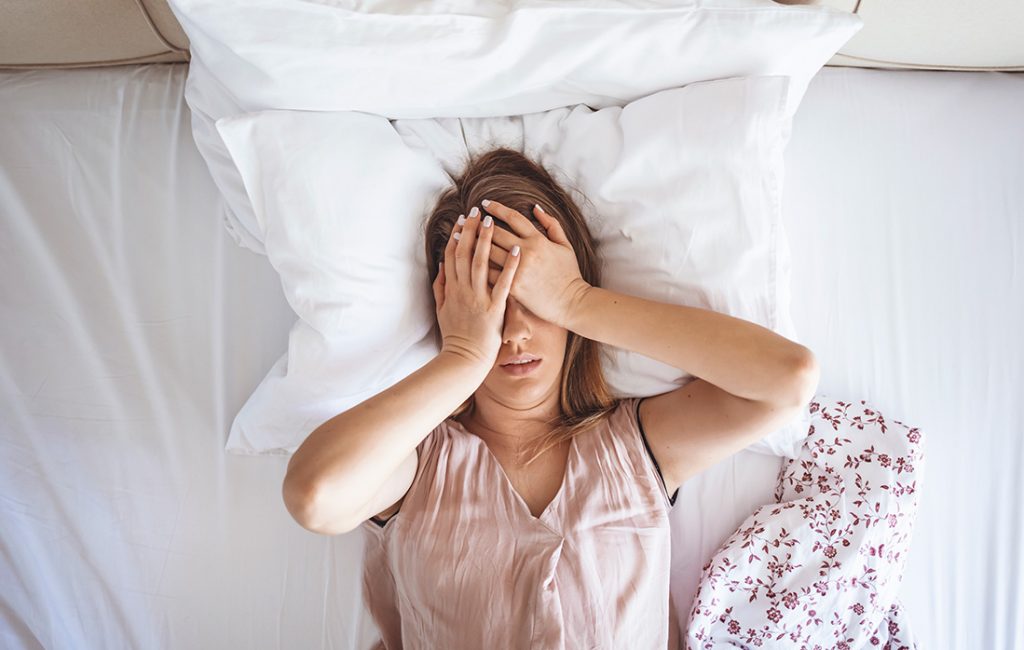 It turns out that 7 out of 10 Americans need better sleep–not 3 out of 10 as was previously thought.
It turns out that 7 out of 10 Americans need better sleep–not 3 out of 10 as was previously thought.
The new survey assessing restorative sleep in American adults, published in the Frontiers of Sleep, found that over 70 percent of the population needs better sleep.
“Our study was the opposite of previous studies,” said Rebecca Robbins, Ph.D., instructor in Medicine at Harvard Medical School, and Sleep Scientist at the Brigham Women’s Hospital. “We found that only 1 in 3 people are doing well with their sleep, whereas previous studies suggested 2 in 3 were doing well regarding sleep.”
It’s something experts have talked about for a long time, according to Robbins. So, the researchers “sought to define restorative sleep because that is what people crave—they want to wake up feeling rested and refreshed.”
People are buying up technology to try to support their sleep, but the researchers were wondering if people were getting quality sleep.
“Restorative sleep has previously not been studied because it is essentially in the qualitative report domain—feelings of restoration are based on self-report,” Robbins said. “It’s hard to measure how you feel in the morning. If someone has insomnia, I can measure all the different stages of sleep and they score very well, but they’ll wake up and tell me they feel awful.”
Not only is measuring restorative sleep subjective, achieving it relies heavily on daily habits.
“When we refer to restorative sleep, there are several dimensions that result in our ability to wake up and feel refreshed,” Robbins said. “Duration is key—we recommended 7–9 hours for optimal health and well-being. A healthy sleep system that allows us to wake up and feel refreshed is a result of our daily behaviors. Good sleep starts when you wake up in the morning.”
Natural light exposure and exposure to blue light during the day is good for our mood, and it’s important for our circadian rhythm, Robbins added.
“Exposure to light gives our brain information to get out and be alert,” she said. “Then in the absence of light, our brain gets the input to transition to a different mentality. This is an important part of our daily routines. Additionally, restorative sleep relies on what we eat and drink daily. Eating a healthy breakfast, lunch, and a light dinner allows us to wake up and feel refreshed in the morning.”
Restorative sleep, the researchers explained, is felt when you wake up in the morning feeling rested and refreshed. This restorative sleep happens when brain activity during sleep restores your body and mind, essentially resetting you for another day of activity and basic well-being.
“We found that only about 28 percent scored high on the restorative sleep questionnaire,” Robbins said.
One of the most important demographic factors was age.
“We saw things suggesting that those older than 60 years of age, retired folks, and widowed individuals were doing better with restorative sleep than working adults and those with two or more persons living with them,” Robbins said.
There is some hope for the 70 percent of Americans who aren’t getting restorative sleep.
“Don’t stress if you wake up after a poor night of sleep and don’t feel great,” Robbins said. “Take it in stride. Think of that sense of not feeling great as motivation for getting back on track—paying more attention to what you put in your body, limiting caffeine, and exercising—aim to hit those buckets the next day.”
